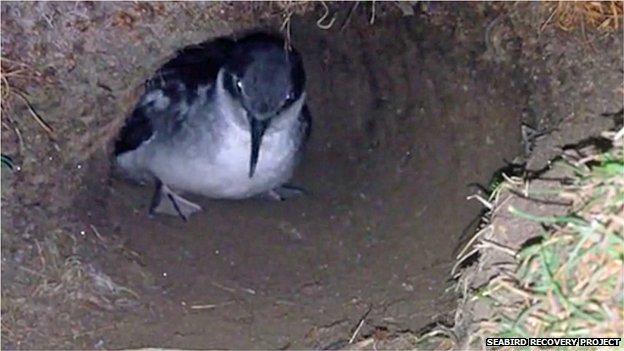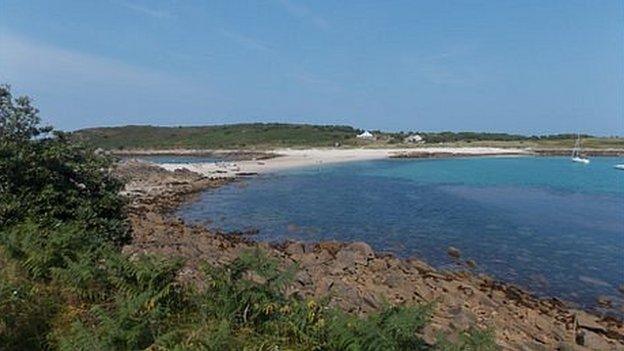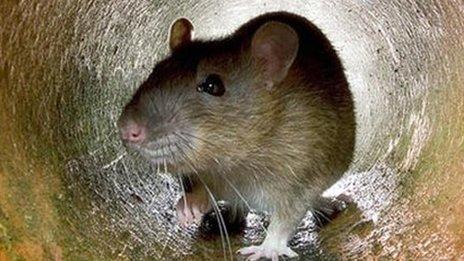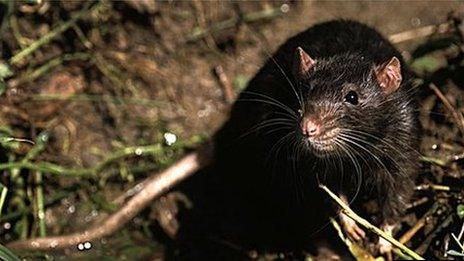Two of Isles of Scilly declared 'rat free'
- Published

A Manx Shearwater chick emerges from its burrow on St Agnes
Two of the Isles of Scilly have been declared "rat free" after a scheme to protect sea birds saw more than 3,000 rodents culled.
The islands, located off the coast of Cornwall, began the scheme two years ago to protect eggs and baby birds from being eaten by brown rats.
Numbers of manx shearwaters and storm petrels had declined by 25% on St Agnes and Gugh in 25 years.
But colonies are recovering thanks to the rat eradication measures.
Poison placed in an agricultural pipe was positioned in 1,000 locations on the islands in order to kill the vermin.
According to international protocols, the islands could not be officially declared rat-free for two years after the last sign of rat was detected - making them officially free of the rodent on 13 February.

About 3,100 rats are believed to have been removed from St Agnes and Gugh
Jaclyn Pearson, from the RSPB Isles of Scilly seabird recovery project, said the seabird population was already starting to recover.
"Straight away we saw results," she said.
"The baiting was done in winter 2013, and in September 2014 we had 10 Manx Shearwater chicks. That's the first time in living memory that chicks have survived and it's clearly because of the removal of the rats.
"We didn't think we would have an uptake of storm petrels so quickly as they hadn't nested on the island for a long time, but we recorded five in 2015.
"So already the results are clear and they're beginning to bounce back."
A questionnaire among residents shows they're delighted with the results, the RSPB said.
The project cost £700,000 and was funded by the Heritage Lottery Fund and the European Union.
Wildlife Management International Limited (WMIL) from New Zealand was contracted to carry out the rat removal phase from November to March in "the most humane way".
- Published8 November 2013

- Published17 January 2013

- Published25 April 2014
